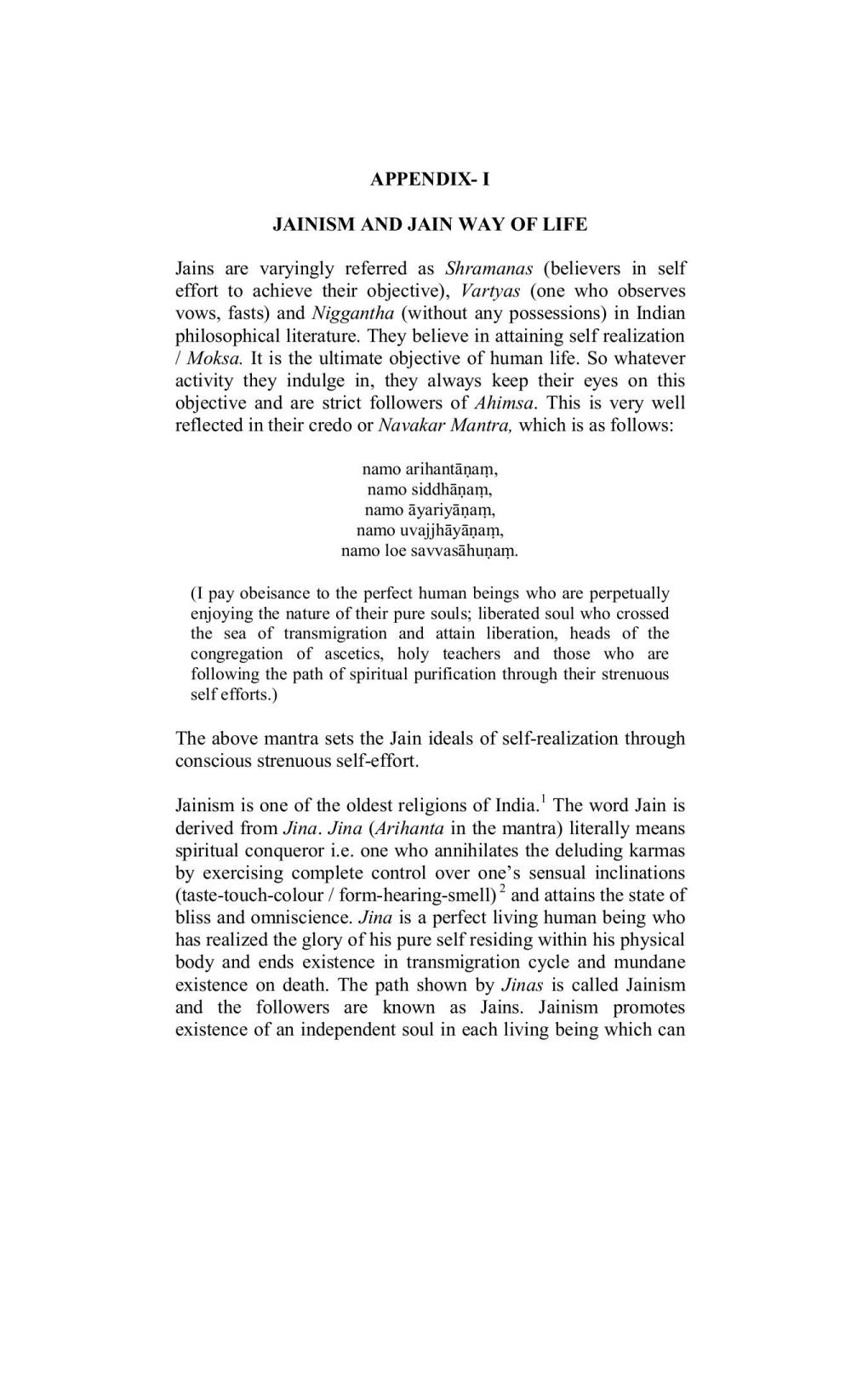________________
APPENDIX-I
JAINISM AND JAIN WAY OF LIFE
Jains are varyingly referred as Shramanas (believers in self effort to achieve their objective), Vartyas (one who observes vows, fasts) and Niggantha (without any possessions) in Indian philosophical literature. They believe in attaining self realization / Moksa. It is the ultimate objective of human life. So whatever activity they indulge in, they always keep their eyes on this objective and are strict followers of Ahimsa. This is very well reflected in their credo or Navakar Mantra, which is as follows:
namo arihantāṇam, namo siddhāṇam, namo āyariyāṇam, namo uvajjhāyānam, namo loe savvasāhuņam.
(I pay obeisance to the perfect human beings who are perpetually enjoying the nature of their pure souls; liberated soul who crossed the sea of transmigration and attain liberation, heads of the congregation of ascetics, holy teachers and those who are following the path of spiritual purification through their strenuous self efforts.)
The above mantra sets the Jain ideals of self-realization through conscious strenuous self-effort.
Jainism is one of the oldest religions of India. The word Jain is derived from Jina. Jina (Arihanta in the mantra) literally means spiritual conqueror i.e. one who annihilates the deluding karmas by exercising complete control over one's sensual inclinations (taste-touch-colour / form-hearing-smell) - and attains the state of bliss and omniscience. Jina is a perfect living human being who has realized the glory of his pure self residing within his physical body and ends existence in transmigration cycle and mundane existence on death. The path shown by Jinas is called Jainism and the followers are known as Jains. Jainism promotes existence of an independent soul in each living being which can




